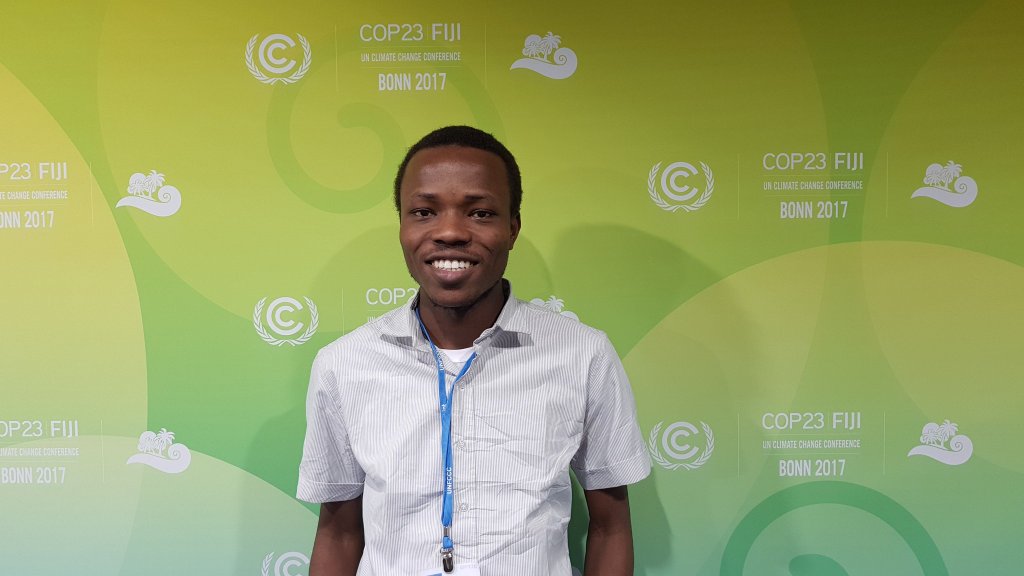Samuel Adeyanju, a UBC MSc student in the Faculty of Forestry and a 2017 MasterCard Foundation Graduate Scholar, shares his experiences on the 23rd session of the Conference of the Parties (COP 23) to the UN Convention on Climate Change (UNFCCC). The conference took place at the headquarters of the UNFCCC Secretariat in Bonn, Germany, November 6 to 17, 2017.

My goal in attending the conference was to deepen my knowledge of climate action, the UNFCCC and climate negotiation processes, as well as to promote forestry perspectives on climate change mitigation and adaptation policies at varying working groups. Importantly, as a graduate student with a research interest in forest policy and governance, the event afforded me the opportunity to network with various organisations and professionals, which could be useful in my future career.
As a delegate of the International Forestry Student Association (IFSA), I attended several side-events in the Bonn zone, the opening plenary of the Subsidiary Body for Scientific and Technological Advice (SBSTA), and a press conference in the Bula zone.
Here are highlights from two of the events.
The “What to expect from COP23” side-event was jointly organised by the Third World Network (TWN) and the South Centre. The event featured key negotiators from developing countries such as Ecuador and South Africa speaking about what they expected as key outcomes of COP23. They discussed the obligation of developed countries to provide adaptation assistance to developing countries as outlined in the Paris Agreement. They stressed the legal obligation of developed countries to provide financial support and technology transfer to developing countries. Adaptation receives less than 10% of all climate financing—representatives from developing countries recommended an increase in funds for adaptation projects. Panelists also reiterated the need for parties to maintain transparency in their commitment to the Paris Agreement.
The second event I attended was organised by Climate Action Network (CAN) International. It examined the various “yardsticks” for success at COP23. These included taking concrete steps towards a comprehensive rulebook to stay below 1.5°C of warming, and the construction of a robust framework for financing climate adaptation and managing “loss and damage” (Irreversible losses such as loss of life, species and land, and costly damages such as destroyed infrastructure] caused, at least in part, by climate change). Eliza Northrop, an associate at the International Climate Initiative of the World Resource Institute (WRI), argued that success would be demonstrated by strong support for the COP23 and COP24 presidencies to take COP 23 ideas and resolutions forward next year, clarity on active participation by non-party stakeholders, and consensus on the purpose of the Talanoa Dialogue. In addition, Lucile Dufour, representing Réseau Action Climate France, highlighted some expectations for climate finance at COP23, such as the achievement of noticeable progress on the adaptation fund and developed countries committing to meet the $100 billion USD target to finance adaptation.
In all, it was an interesting time at COP23 with many things to learn and report.